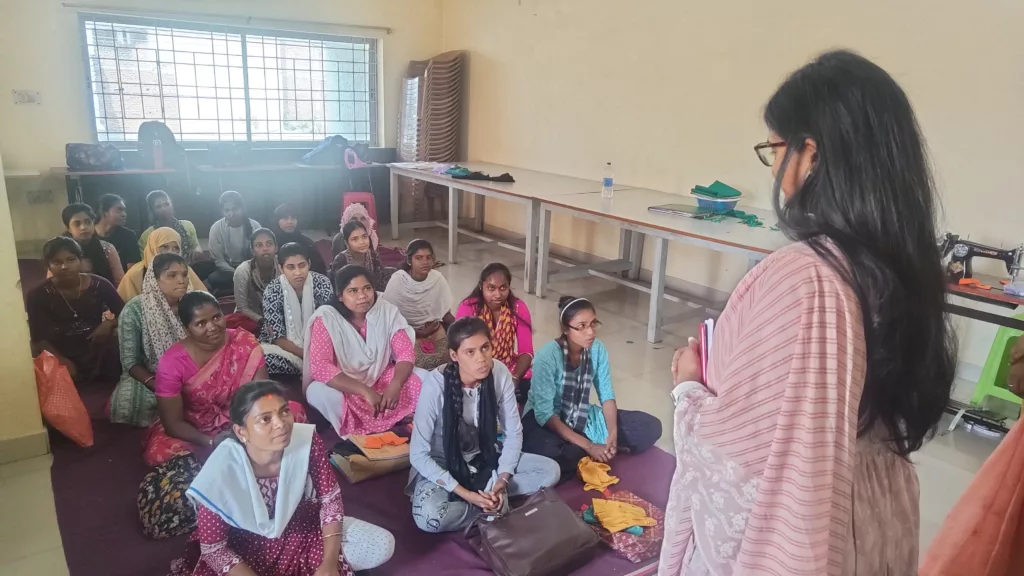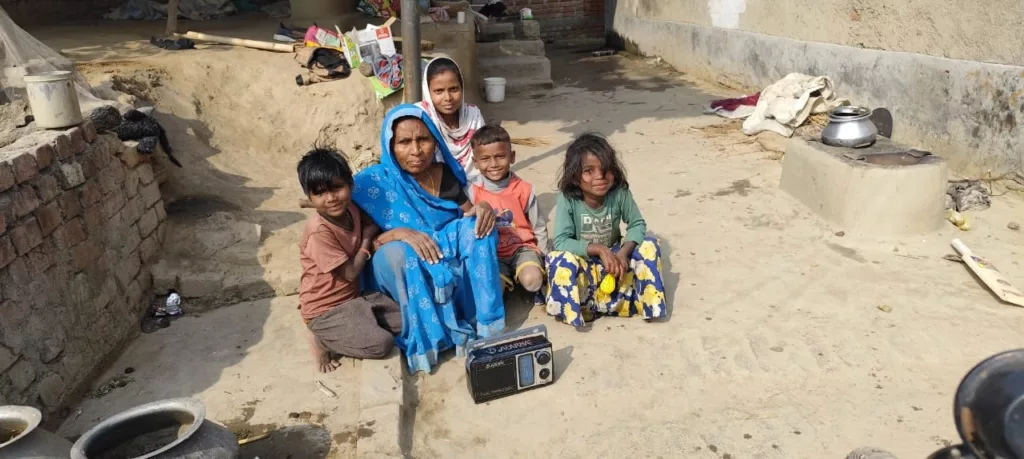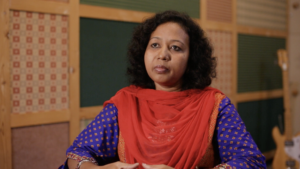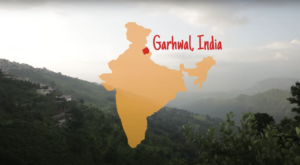India
Faith on Fire: God is at Work
In a nation of over a billion people, many have yet to hear the name of Jesus. But in India, the gospel is spreading in powerful ways—through media outreach, local church planting, and discipleship. Words of Hope partners with faithful leaders who are sharing the good news in twelve languages across the country. They are boldly sharing Christ’s love in regions where believers are few.
Despite challenges, hearts are opening. And the church is growing.


Your faithful prayers and gifts make it possible to bring hope in some of the most spiritually challenging places in India.
Want to hear firsthand how God is working in India?
Sign up for our quarterly email to receive inspiring testimonies, prayer requests, and ways to get involved.
Languages
Albanian
Pastor and current Words of Hope Albania broadcaster Albert Dosti first heard the gospel in the 1980s on Words of Hope’s Albanian radio broadcasts. At that time, Albania’s Marxist regime made atheism mandatory. Listening to gospel broadcasts was explicitly forbidden. However, Albert was so attracted to the gospel that, despite the risks, he jeopardized his freedom to continue listening. Today that hard-line government is no longer in power, and Albanians can freely listen to several Christian FM radio stations that feature daily broadcasts from Words of Hope’s Albanian programs.
Stories from India

Meet Neelam
Neelam Sonali Tirkey has been a radio producer for Words of Hope for 17 years. Learn more about Neelam and how God called her to the ministry.

Reaching the Garhwali Community in India
The Garhwali community lives in the remote regions of the Himalayas, far away from Delhi. Garhwali listeners tune into our programs, contact our producers, and are connected to churches in their area. Words of Hope’s radio ministry is growing very rapidly in the Garhwal region, and producers Rajesh and Ajay put their heart and soul into the Lord’s work.

Pray the Lord of the Harvest
Read: Matthew 9:37-38 Biblical Christians realize that Christ has commissioned us to do something about a world of lost people. But we don’t always remember that the first thing he told
Languages
Angika
The Angika language is alternatively classified as Chhika-Chhiki, a variant of Maithili. It is the native language of Bhitan and Jharkhand states of India, and the Terai region of Nepal. Angika is spoken by about 15 million people.
Bhaderwahi
The Bhaderwahi language is spoken in the Bhaderwah region of Jammu and Kashmir in India. Bhaderwahi is commonly called Pahari; some speakers may even call it a dialect of Dogri. The language of Bhaderwahi is considered endangered and does not have any official status. Parents are not teaching the language to their children, and it is being replaced by Urdu/Hindi or Kashmiri. It is spoken by 120,000 people.
Dogri
Dogri is spoken by the people in the southern half of the northernmost Indian state of Jammu and Kashmir. Kashmir is predominantly Islamic, while the majority of the population in Jammu is Hindu. These states are located in the Himalayan Mountains, where many of the people still seek after “god” by praying to idols in temples.
Garhwali
The Garhwal is a mountainous region where the River Ganges emerges from the Himalayas. It is home to many of Hinduism’s holiest sites with numerous shrines for Hindu pilgrimage. The Garhwali people listen to radio—the only available means of taking the gospel to these mountain dwellers. The Garhwali language is spoken by over 4 million people in the Garhwal region of the northern Indian state of Uttarakhand. This region still faces the problems of illiteracy and poverty. Radio is an effective tool to reach the many Garhwali listeners with the message of God’s redeeming love.
Gujari
Gujari (also known as Gurjari, Gujri, Gojari, or Gojri) is spoken by the Gurjars and other tribes of India, Pakistan and Afghanistan. There are roughly one million native speakers of Gujari. The Gurjar people are an agricultural and pastoral community of India, Pakistan, and Afghanistan. The Gurjar people are religiously and regionally very diverse.
Haryanvi
The Haryanvi language is spoken in the state of Haryana in India, and also in Delhi. Haryanvi is spoken by nearly 10 million people, and is a dialect of Hindi and is written in the Devanagari script. Haryana has a unique and notable culture of traditional folk music and dancing, which has been the backdrop of some Bollywood films.
In the state of Haryana, Christianity is .2 percent of the population, with the vast majority of people (87 percent) practicing Hinduism.
Hindi
Hindi is spoken by 407 million people, of which 80% are Hindu, with an official estimate of only 2.4% Christian. The ministry of Good Books Educational Trust (GBET) began in the 1960s with the establishment of Christian bookstores. Through its partnership with Words of Hope, GBET broadened its outreach in 1978 to provide Christian radio programming and publications. Responses are received through telephone, email, text-messaging, and postal mail. The ministry conducts personal field visits as well as ongoing Bible correspondence courses.
Kashmiri
Perched high in the Himalayas in a long-disputed region along the India-Pakistan border, Jammu and Kashmir is India’s only predominantly Islamic state. Since November 2011 Words of Hope has not been able to produce Kashmiri programs, forcing the radio broadcasts to be discontinued. Kashmir’s highest official of Sharia law not only banished the only Christian pastor, but also the coordinator of Words of Hope’s Kashmiri ministry. The charges were “propagating Christianity” and “luring Muslims to Christianity by exploiting their financial conditions and promoting immorality.” Their actual offense was baptizing people who had turned from Islam to Christ. The government of Kashmir agreed to enforce the verdict of the Islamic court with a “lifetime ban,” forbidding these Christian leaders from ever reentering the state. The Words of Hope ministry leader and his family were forced to flee the state, abandoning their home, possessions, and the small studio where Kashmiri radio programs had been recorded.
Kurukh
Kurukh is a local language of the people of Jharkhand, and is spoken in India as well as Bangladesh, Nepal, and Bhutan. The two tribes who speak the Kurukh language are the Oraon tribe and the Kisan tribe, with 1,834,000 and 219,000 speakers respectively. The literacy rate is 23% in Oraon and 17% in Kisan. Despite the large number of native speakers, the Kurukh language is on the UNESCO list of endangered languages.
Maithili
The Maithili language is spoken mainly in the Bihar and Jharkhand regions of India. It is one of 22 recognized language in India, spoken by 50 million people. It is the official language of Bihar, India.
Sadri
The Sadri language is spoken by people living in several of the eastern states of India. It is similar in some ways to Hindi, and is considered by some to be a dialect of it. About four million people speak the Sadri language. The caste system can still be encountered among those living in this region, an issue that gospel radio programming can speak truth into. The primary religion in this area is Hinduism, and estimates show that as few as 2% of the population is Christian at this time.
Urdu
Urdu is the national language of Pakistan. Urdu is closely related to Hindi and is a form of the Hindustani language. There are more than 100 million native Urdu speakers in India and Pakistan together. The Urdu language is the 21st-largest first language spoken in the world, with approximately 61.9 million native speakers, and the 10th most widely spoken language in the world. Some Indian schools teach Urdu as a first language. Urdu is also commonly used in India’s Bollywood industry, especially in songs.
